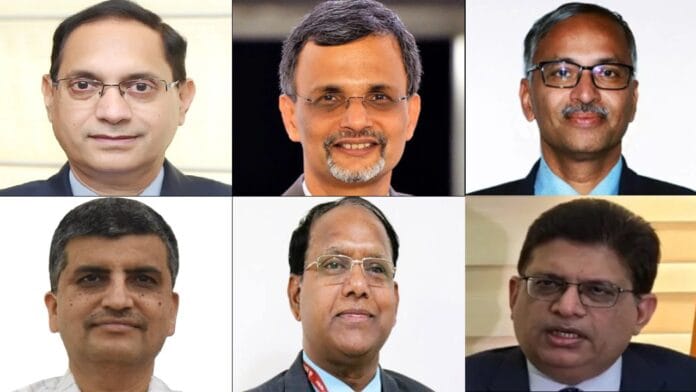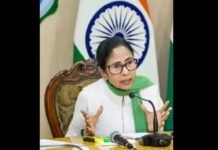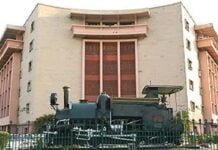Union Finance Minister Nirmala Sitharaman presented her record eighth consecutive budget on Saturday, outlining the government’s plans for taxation, spending, and economic growth. The budget contained various measures that aims to ease the burden on the middle class struggling with high prices and stagnant wage growth while being fiscally prudent at the same time.
With this budget, as the President of India said, the government wishes to lift the economy out of the state of “policy paralysis” despite global concerns such as aftermath of COVID-19 pandemic and war-related uncertainties.
The Indian economy is expected to grow at 6.3-6.8 percent in 2025-26, as per the Economic Survey tabled on Friday.
There is a host of the key officials who work overtime to shape up the country’s fiscal future at least for a year. These officials work behind the scenes to draft policies that impact every sector of the economy. Have a look at them.
Tuhin Kanta Pandey, Finance & Revenue Secretary
A 1987 batch IAS officer of the Odisha cadre, Tuhin Kanta Pandey is responsible for revenue generation through taxation while addressing demands for tax cuts and incentives. He is currently overseeing the revamp of income tax laws, which may be introduced in the upcoming parliamentary session.
V Anantha Nageswaran, Chief Economic Adviser
As the Chief Economic Adviser, Nageswaran is tasked with analyzing the country’s economic health and proposing reforms to boost growth. He played a key role in preparing the Economic Survey, which serves as the foundation for many budgetary decisions.
Manoj Govil, Secretary, Department of Expenditure
A 1991 batch IAS officer from the Madhya Pradesh cadre, Manoj Govil plays a crucial role in managing government spending. His responsibilities include subsidy rationalization, funding centrally sponsored schemes, and improving public expenditure efficiency. Balancing welfare spending with fiscal discipline remains one of his primary challenges.
Ajay Seth, Secretary, Department of Economic Affairs
A 1987 batch IAS officer from the Karnataka cadre, Ajay Seth heads the Department of Economic Affairs. He has been instrumental in maintaining macroeconomic stability and balancing fiscal consolidation with growth-oriented policies. His department also plays a key role in shaping economic policies amid global financial uncertainties.
M Nagaraju, Secretary, Department of Financial Services
A 1993 batch IAS officer of the Tripura cadre, M Nagaraju oversees the Department of Financial Services, ensuring the smooth flow of credit, regulating fintech companies, and expanding the insurance sector. His role is critical in maintaining financial sector stability.
Arunish Chawla, Secretary, DIPAM & DPE
A 1992 batch IAS officer from the Bihar cadre, Arunish Chawla leads the government’s disinvestment and asset monetization efforts. He played a significant role in the strategic sale of IDBI Bank and other state-run enterprises while working on asset monetization plans to generate revenue for public spending.
These officials, working tirelessly behind the scenes, ensure that India’s budget is not just an annual financial statement but a roadmap for the nation’s economic future. Their expertise and decision-making shape policies that impact every sector, from taxation and public spending to investment and economic stability.



















